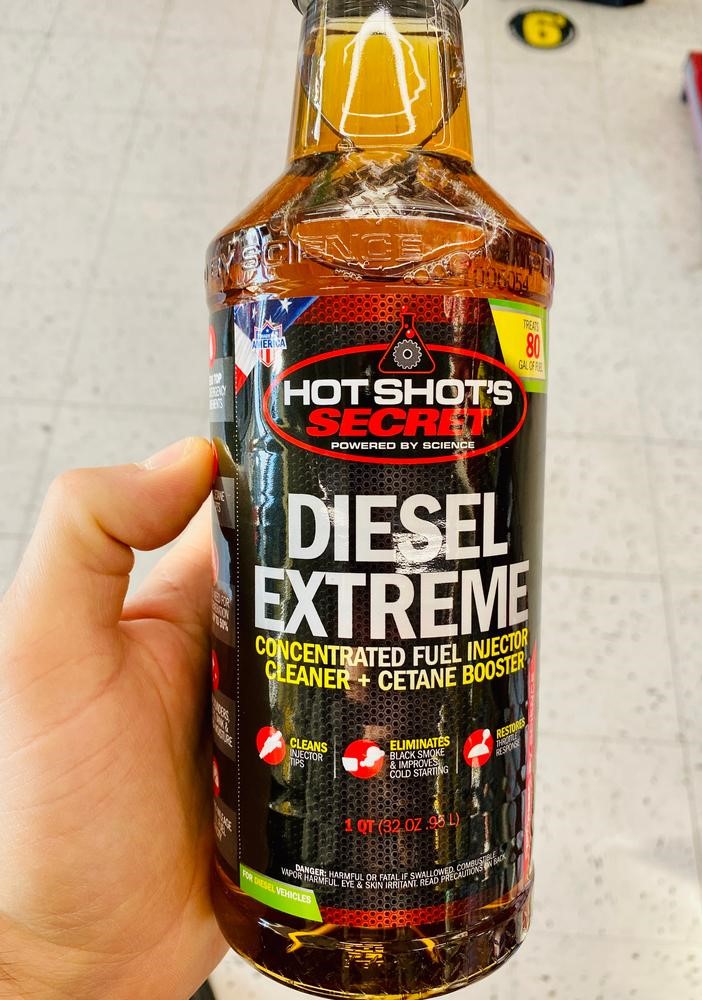You’ve probably seen dozens of ads and labels for diesel fuel additives that contain cetane boosters. Many of these products claim to increase engine performance while improving cold starts in the winter, but the truth is that cetane boosters can actually damage your engine under the right conditions. Don’t make the mistake of using these additives without knowing how they affect your engine. Learn how and when to use cetane boosters to utilize the benefits without the unwanted side-effects.
What are Cetane Boosters?
Cetane is a clear, colorless hydrocarbon that ignites under high pressures. Every type of diesel fuel comes with a certain cetane rating. The higher the number, the better the fuel will burn with the engine. Pure cetane would be the highest purity of diesel fuel possible with a rating of 100. The cetane rating is similar to the octane rating for gasoline fuel in terms of measuring the combustion quality of the fuel, however cetane is used for diesel fuel.
Cetane measures the delay in the ignition time of the fuel. A high number means this amount of time is minimized. Fuel with more cetane often burns more quickly and completely, resulting in a smoother, quieter engine.
The Engine Manufacturers Association says that low cetane fuels can lead to hard or rough starts, more engine noise and exhaust smoke. Diesel engines usually operate better on fuels with cetane numbers 50 and above compared to the national average of 46. However, using anything with a 55 rating or above can actually do more harm than good by reducing engine power.
Companies have started adding cetane boosters to fuel additives to increase the cetane rating of the fuel, but there is a danger of adding too much cetane.
When to Use Cetane Boosters
Many products with cetane boosters claim to help with engine performance and reducing knock, but these claims have no basis in reality. The fact is that these products have very limited benefits on the road.
You may want to use cetane boosters in the winter to help with cold starts. Diesels need time to warm up as the oil circulates throughout the engine. The extra cetane can speed up the ignition process in this situation, but their benefits usually end there. Once the system reaches its normal operating temperature, the cetane won’t do the engine much good.
Experts recommend using Diesel #1 in the winter. It has a higher cetane rating than Diesel #2 to help with ignition times in cold temperatures. You may still need to use fuel additives to stop the fuel from gelling, but you shouldn’t need any more cetane.
When to Avoid Cetane Boosters
Most diesel manufacturers recommend against using fuel additives with cetane boosters for a number of reasons. Most fuel already contains enough cetane and adding more could lead to a host of problems.
The true cetane level can be hard to measure. If the fuel contains a biodiesel blend, the cetane number will usually be even higher than the official rating.
OEMs also recommend against using cetane boosters if they contain any metal-based additives, alcohol, or other water emulsifiers. However, most cetane boosting products contain alcohol and harmful solvents like 2-exthylhexyl nitrate, which will damage the internal component of the engine.
These substances can lead to what’s known as preignition, which is when the water emulses with the fuel. Intense pressure and extreme temperatures can vaporize the water in the fuel, turning it into steam, which will damage the tip of the injectors. This leads to uneven spray patterns and wasted fuel. In some cases, the alcohol will even cause the gaskets to swell up, while drying out the entire fuel system.
Keep your engine operating at the right temperature by using high-quality EGR coolers that lower the temperature of the exhaust gases before recirculating them into the combustion chamber.
The Bottom Line
Cetane boosters pose a danger to the internal components of your engine. You should only use products that will ultimately benefit your vehicle. Fuel additives made from petroleum distillate are always a safe bet. Make sure these products don’t contain any alcohol or solvents that emulsify water. It’s always best to demulsify the water, which means separating the water molecules and pushing them to the bottom of the fuel. This reduces the chances of steam and vaporization that can damage internal components.
If you have been using cetane boosters, you may need to replace some of your diesel parts. Watch out for wear and tear and other warning signs that something is wrong with your engine, such as a sudden loss of power, exhaust smoke, poor lubrication, and rough idling and performance. Look for new 6.0 VGT actuators if your turbo is working properly.
It’s always better to use high-quality fuel and additives that increase engine performance and fuel efficiency. Avoid labels and ads that make big promises without having the facts to back them up.




